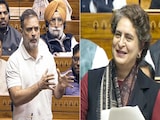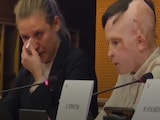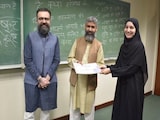Humanity has always been captivated by the goal of delaying the ageing process and lowering the risk of age-related diseases. Recent developments in science are moving us closer to this objective. To fight ageing, scientists are looking into dietary changes, stem cell therapy, and genetic engineering. For example, studies suggest that caloric restriction and specific dietary supplements can extend lifespan and enhance health in animals.
Notably, Bryan Johnson, a former Silicon Valley CEO, has invested millions in anti-ageing treatments through his initiative, Project Blueprint, and claims to have reversed his biological age by 5.1 years using a strict diet and regimen. Other wealthy individuals, including Paul Allen, Peter Thiel, Dmitry Itskov, J Craig Venter, Sergey Brin, and David Koch, are also funding research in this field, reflecting widespread interest and investment in combating ageing.
Olga Tkachyova, chief consultant geriatrician of the Russian Ministry of Health and a corresponding member of the Russian Academy of Sciences, expressed her views to Sputnik News: "People should live for a hundred years and not suffer from age-related illnesses by the time of their death." She emphasised that improvements in food, living conditions, and healthcare have significantly boosted life expectancy, and now humanity must focus on "manageing the processes of ageing."
Tkachyova pointed out that while life expectancy continues to rise, the maximum lifespan-currently at 122 years-remains unchanged. She suggested that breakthroughs in gene-engineering therapy and regenerative medicine might be necessary to extend maximum lifespan.
On one hand, Tkachyova noted, "The ageing process is preprogrammed in the human organism, but we can influence it." On the other hand, the accumulation of "errors" in the body accelerates ageing.
She also highlighted that non-medical methods can influence ageing, such as physical activity. Tkachyova explained that a protein called myostatin, which blocks muscle cell replication, contributes to muscle atrophy and frailty. While no medication currently exists to block myostatin, physical exercise can help slow age-related muscle atrophy and promote a longer, healthier life.
"Positive emotions have a colossal effect on longevity," Tkachova said.















